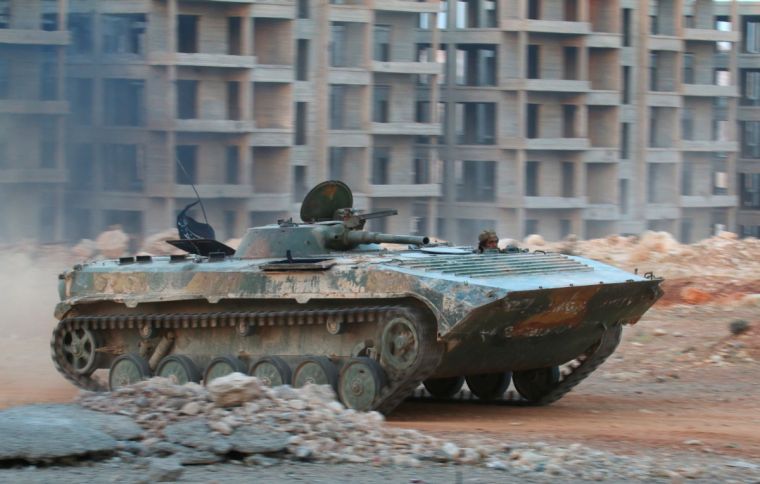Syria: Unicef warns children at risk of 'catastrophe' in Aleppo

The United Nations has called for an urgent ceasefire in the troubled city of Aleppo in Syria, warning of "dire" consequences for millions of civilians if water and electricity supplies are not immediately repaired.
Children are most at risk, the UN's children's agency Unicef said on Tuesday, and they are now facing a "catastrophic situation".
Aleppo has been running without water for four days. The electricity transmission station which powered the water supply to the eastern and western parts of Aleppo was originally damaged on July 31. Repair work was completed on August 4, but intensified fighting then further damaged the lines.
Up to 275,000 people are currently trapped in eastern Aleppo as the violence continues.
"These cuts are coming amid a heat wave, putting children at a grave risk of waterborne diseases," said Unicef's Hanaa Singer in Syria. "Getting clean water running again cannot wait for the fighting to stop. Children's lives are in serious danger."
Unicef spokesman Christophe Boulierac told a briefing that around 100,000 children in the eastern parts of Aleppo are already relying on water from wells "which are potentially contaminated by faecal matter and unsafe to drink".
Unicef warned that this will worsen if the water pumps are not restored, but in the meantime, along with other aid agencies, it is bringing emergency drinking water in to the city by truck.
The problems are heightened because at least 10 health care facilities were attacked last month in Aleppo, meaning that civilians who become ill lack access to proper medical care.
"According to Eastern Aleppo City local health authorities, 8 out of 10 hospitals and 13 out of 28 primary health care centres are now partially functional or out of service as a result of these attacks," World Health Organisation spokesman Tarik Jasarevic said, according to Reuters.
"Only 35 medical doctors remain in the city, and their capacity to cope with the excess demand has been overwhelmed."
"We urge parties to the conflict to immediately allow safe access for technicians to conduct critical repairs to the electricity and water systems," Singer said. "This is the only way people all over the city can have safe drinking water. Civilian infrastructure like electricity and water pumping stations must never be attacked."











